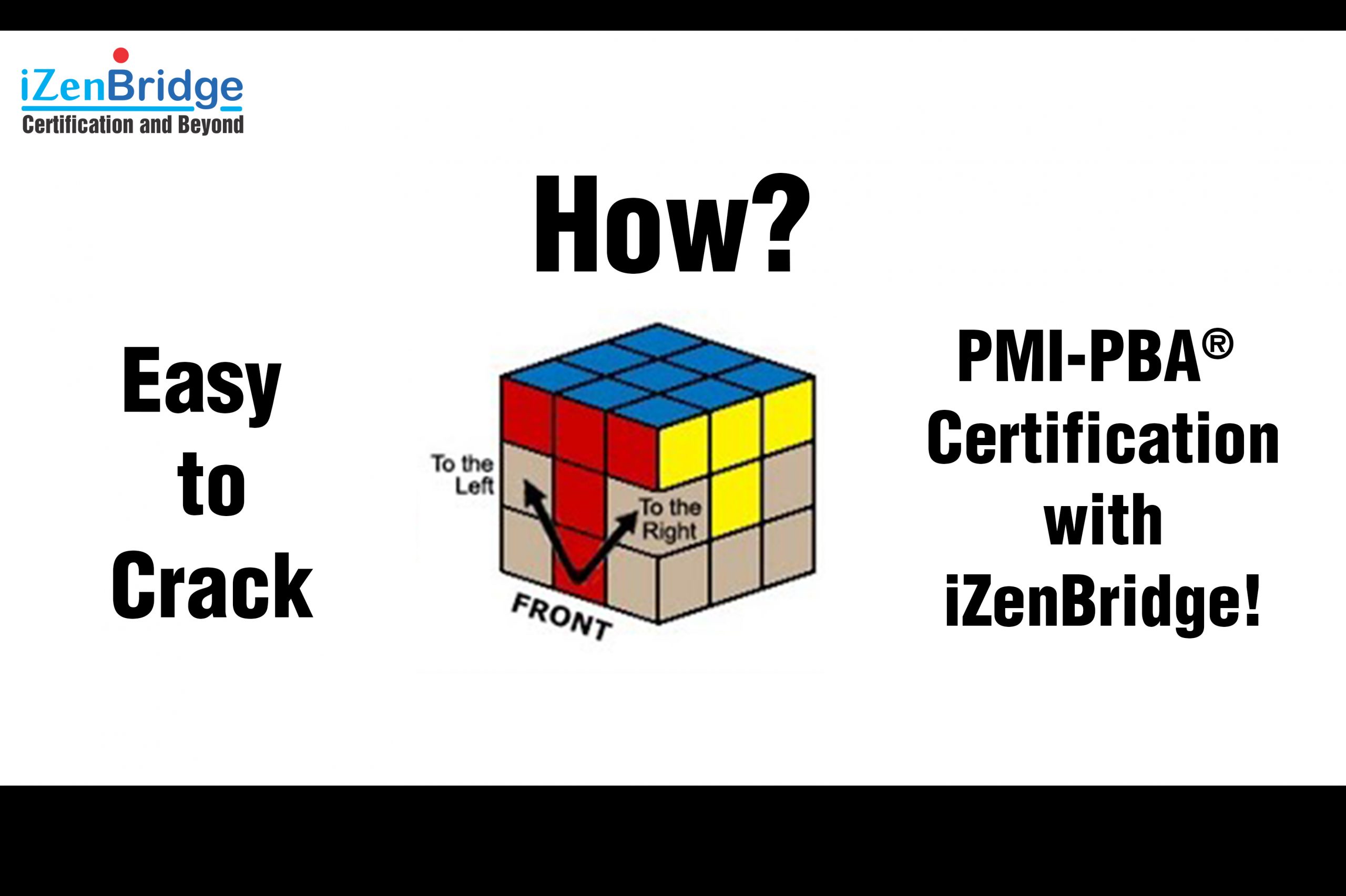

Would you like to achieve success in your PMI-PBA® exam certificate at the earliest possible time? Would you like to know the core habits that recent PMI-PBA® exam test takers developed to achieve it ASAP?
If so, go ahead and read this blog to know what habits successful PMI-PBA® exam certified people installed in their exam preparation.
I am giving PMI-PBA® certification training since beginning when PMI introduced it. Based on my experience of talking to many PMI-PBA® exam certified professionals, one thing I am sure that PMI-PBA® exam checks connect with your real-life Business Analysis scenarios. Thus, only study material is not enough; you need a goal based study plan to achieve your PMI-PBA® certification ambition. Also, a clear visibility of preparation is equally important and throughout your certification journey, if you connect to your fellow participants and the trainer – it is like you are going to meet your goal in half the time, because interaction always makes a difference and increase the conceptual understanding.
To make interaction happen, besides my daily availability on iZenBridge Forum, every alternate Saturday, I conduct a clarification session to discuss exam related doubts. Just to share, recently I received feedback from one of my student
The clarification sessions are the best thing I’m impressed about, as those sessions address key knowledge areas.
Usually, I cover a topic in each session and then pick queries from the participants and discuss it Live at that point. It is the usual format of my clarification sessions, but session held on 17th December 2016 I introduced a twist. At this meeting, I invited Akanksha Ashar, who cleared her PMI-PBA® exam on 5th Dec 16 to share exam experience for each PMI-PBA® exam domain. I knew that participants would love to interact with someone who had just passed the exam.
After my session, she started to share, guidelines she followed to study and to crack PMI-PBA® exam confidently. Friends, let’s have these guidelines in her words:
Hi everyone, this is Akanksha Ashar, just like to share few guidelines for your upcoming exam:
Starting with the Key Rules for PMI-PBA® exam, sofirst thing is:
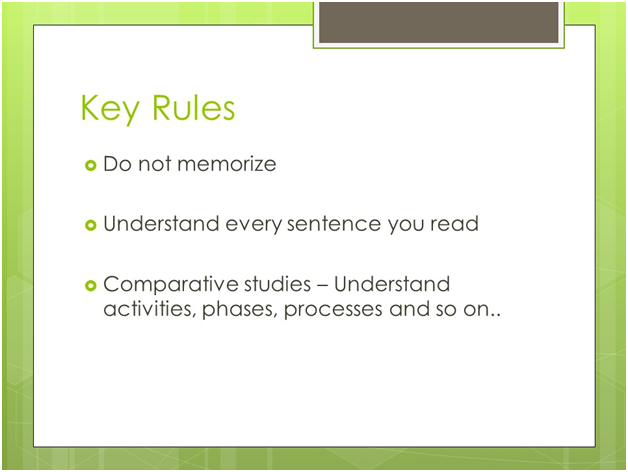
Next is Study Plan: Now these are guidelines which I used, it is dependent on individuals. Here I am sharing few things which worked for me.
More assessments you give, your mind would be more guided to read and understand these questions quickly and conclude them during the exam. These assessments give you rigorous practice for the real exam; otherwise, it is not possible to complete the exam in time.
Moving on to the Assessment Strategy, the way you go or appear in these assessment exams makes a significant difference. You should not just go and appear in these assessment exams which are there in the iZenBridge course material. Without a proper plan, it does not make sense.
What I would suggest –
Friends, assessment has all kind of questions which comes in the exam. Clarifications/explanations of questions are excellent to understand any scenario based questions.
At each stage, check if you are on track? Observe dates which you have planned and cross check how close you are to your goal. You should keep on monitoring your preparation based on the plan you have prepared to achieve your goal. It will help you; there can be variations that need adjustment but – you should follow some of these things, it will help.
Usually, people have questions what should I refer to last day? What should be my last one week preparations? So, it might be a scenario that you have gone through the whole material, has given a lot of assessments, – Now I recommend you to go through the Glossary – because sometimes you forget the concepts entirely, and it may confuse you in the exam. Glossary is essential; you will not get direct questions, but it is important to create an understanding and making familiar for all concepts. For unclear topics, which you could not recollect much – then you should go back to videos and reference books.
Next is iZenBridge forum – which has a lot of different sections:
These are areas which give you access to various topics to improve your understanding, for revising topics, exploring what kind of questions others people have posted. Exploring forum is the good thing to do in your last day’s preparation. It will be a very good revision for last moment. Also, during your preparation, mostly when you are watching videos, I would recommend to write certain notes. You just note down key points. Those will be helpful when you revise things. When you keep these notes, it will be helpful during last days. It may serve a good checklist for you. For the concepts, which you would like to go back.
On the last day, one day before I would say – you should take good sleep, stay confident. Rest yourself. Trust in your hard work. This four hours of the exam test your endurance. You need to be very fresh, so you can consciously understand every question scenario to select the best answer. So, it is critical that you have a very good sleep. Feel fresh and have endurance build by these assessments. Scenarios might be difficult, and you might need more time to understand and answer those questions.
Now let’s discuss Domain-wise Key points of PMI-PBA® exam preparation. Here I am planning to cover few topics which worked as thumb rules for me/ or things to remember!
For all PMI-PBA® exam domains, includes a lot of questions, which ends with like – “what should be the next step” In these cases, more than one answer can be correct, and you need to choose the best answer based on the situation mentioned in the questions.
In these type of questions – referring Business Analysis Plan, Communication Plan, Requirement Management Plan, etc. becomes the best option. If these options are available, choose but at the same time remember Requirement Elicitation, Analysis, Documentation and Communication are iterative processes and this concept may change the best available options
There are five domains in the PMI-PBA® exam:
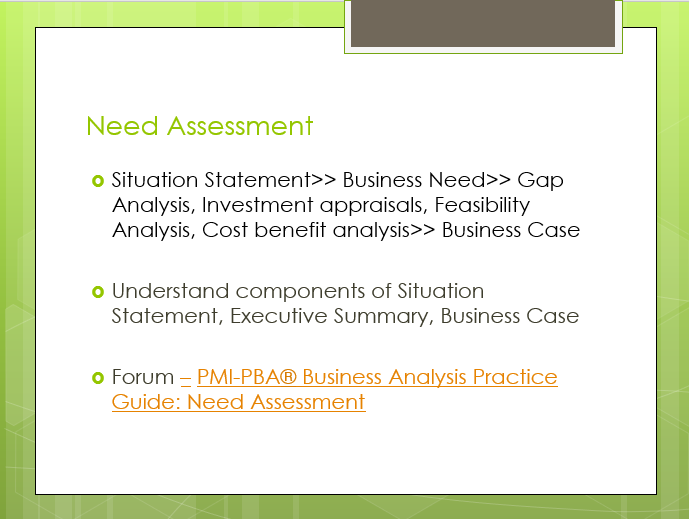 Also, understanding the components of Situation Statement is important, because sometimes exam test which is the best Situation Statement.For a complete summarization of Need Assessment domain, a forum thread is available. it is a good reference of understanding of the Need Assessment Domain. It will give you complete mind map of all the topics of this domain. Lot of content is here, but you would be able to relate it easily. It is logically done and easy to understand.In summary, Understand and remember the sequence of activities of Need Assessment at a high level. Correlate all tasks in each scenario then answer accordingly:
Also, understanding the components of Situation Statement is important, because sometimes exam test which is the best Situation Statement.For a complete summarization of Need Assessment domain, a forum thread is available. it is a good reference of understanding of the Need Assessment Domain. It will give you complete mind map of all the topics of this domain. Lot of content is here, but you would be able to relate it easily. It is logically done and easy to understand.In summary, Understand and remember the sequence of activities of Need Assessment at a high level. Correlate all tasks in each scenario then answer accordingly:
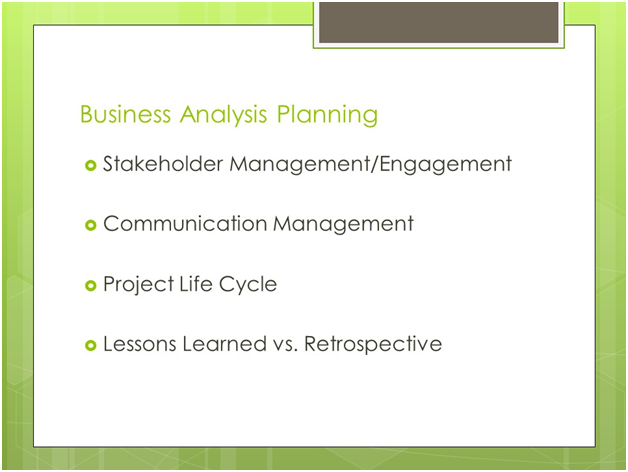 In many questions, you need to understand what kind of project life cycle question is talking about. If you don’t assess the right life cycle, then you end up selecting the wrong answer.
In many questions, you need to understand what kind of project life cycle question is talking about. If you don’t assess the right life cycle, then you end up selecting the wrong answer.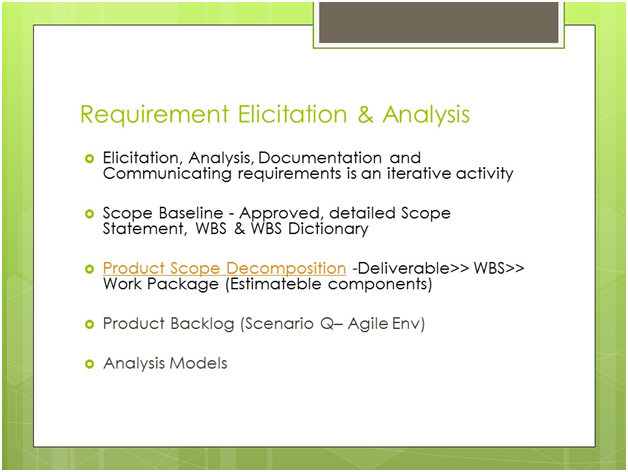
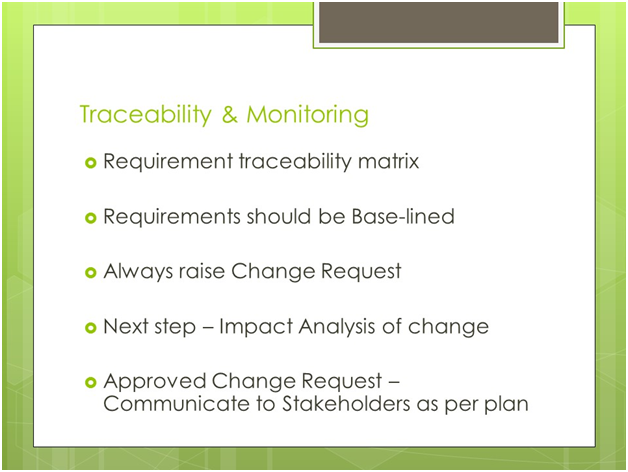
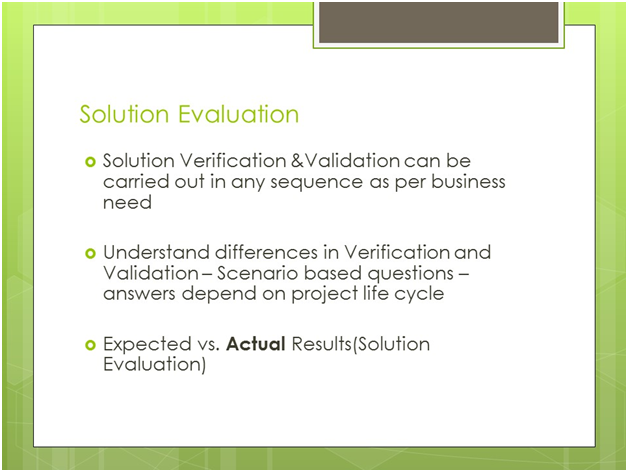
Friends, after explaining all my exam experience, I also shared the forum thread where I briefly explained my exam lesson learned. Then I took the questions from the participants:
Question: Are the questions that come in the actual exam on same lines that iZenBridge’s assessment questions?
Answer: All types of questions are covered in the assessments. You will be able to co-relate these questions. Giving as many assessments It will help you
Seema also added in this answer:
When you give multiple time, especially for Need Assessment, Analysis and Planning domains, you will get new questions. These are the important domains and attempting 50 question set multiple times is a good idea. When you give 2-3 times, you will get all types of questions.
Also, if you are analysing explanation of both wrong and right answers, you become ready conceptually.
The goal is to make you ready for the scenario based questions for each topic of the exam.Some direct questions are also available so that you know them and able to correlate other scenario based questions.
Question: What reference books you used?
Answer: Before joining iZenBridge course I referred 2-3 books, but later I realized the online course is enough. It covers everything.
Question: So, what score we must get out of 50 in assessment where we know we are ready? 30, 40? Ballpark
Answer: If you are scoring 85%, you are ready in respective domain.
Questions:How much preparation time you have taken for the exam?
Answer: Ideally, 3 months, if you study daily basis 2-3 hours, and in weekend approx. 5 hours, I took six months. Initially, I did not give time during weekdays. I was busy at work.
Seema added: If you are maintaining the rhythm, two months are more than enough. In fact, if you are taking six months, chances would be that you score less because we may forget concepts with the time.
Yes, due to Work and life and challenges, we need to customize the study plan
Friends, I hope my talk with Akanksha will support you in your PMI-PBA® exam. For more details of iZenbridge online course, you may visit: https://izenbridge.com/pmi-pba/online-course/
We do provide a unique way of learning with Best Support System and Follow Up Sessions, worth your investment. iZenBridge online PMI-PBA® certification course comes with a 7-days money back guarantee if you don’t love it. This course will be one of the best course you’ve ever experienced in your certifications journey.
let’s listen to the whole discussion in following YouTube Video: (In case you just want to jump directly to the Akanksha Success story, play the video from the time stamp 26.46)
Akanksha also shared her experience about how iZenBridge helped her in becoming PMI-PBA® exam certified. Enroll to our FREE PMI-PBA® Certification Introductory Program to learn more about PMI-PBA® certification
Akanksha also shared her experience about how iZenBridge helped her in becoming PMI-PBA® exam certified.
You can refer following YouTube videos playlist to have more insight from recent PMI-PBA® exam test takers:
Enroll to our FREE PMI-PBA® Certification Introductory Program to learn more about PMI-PBA® certification
No Trainings found